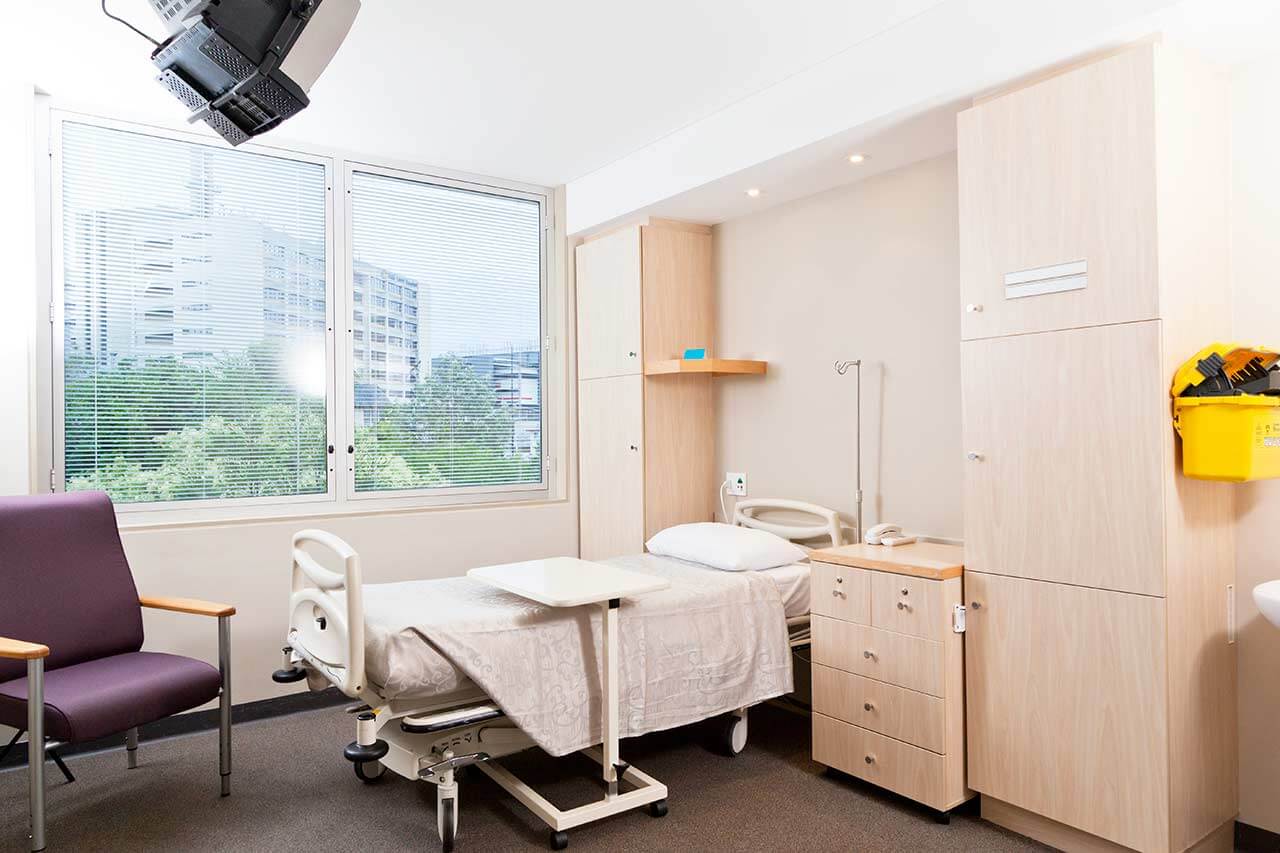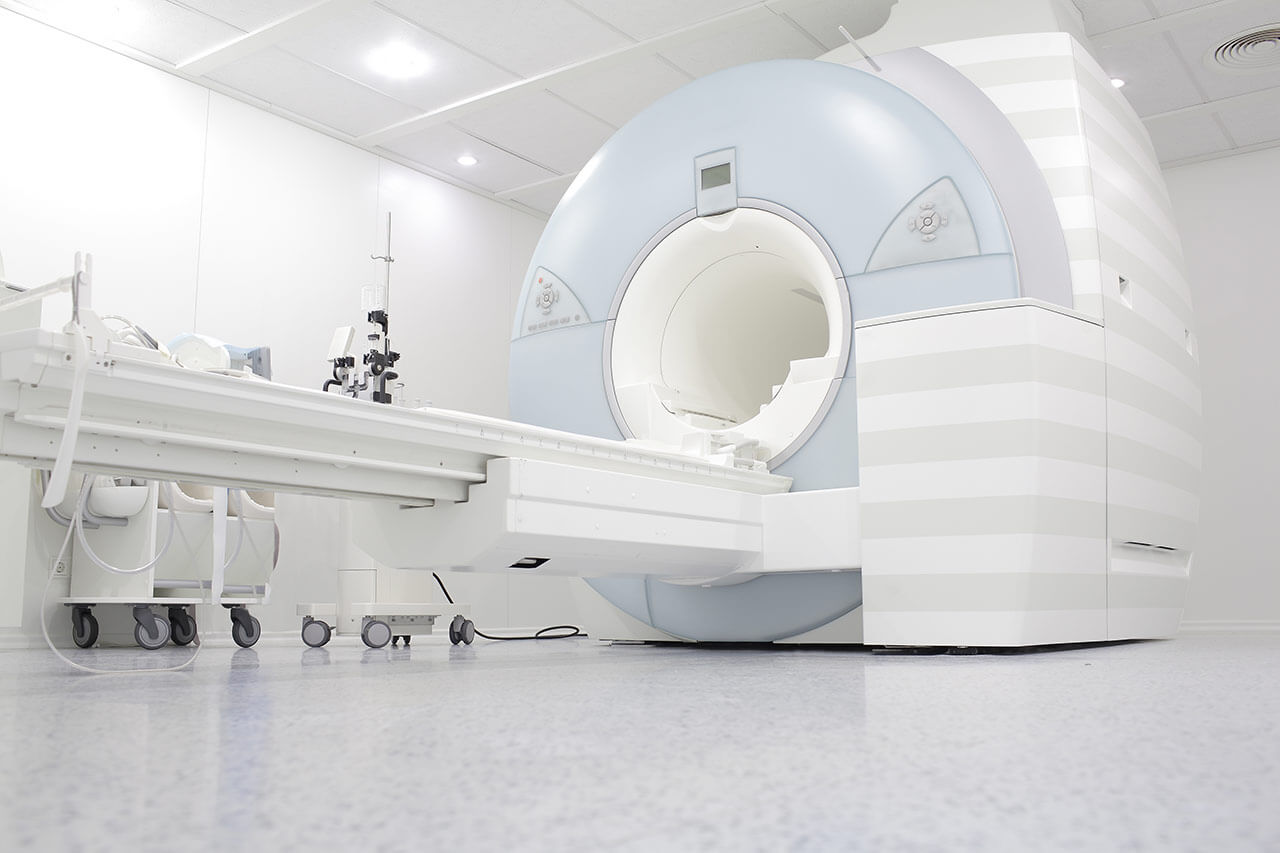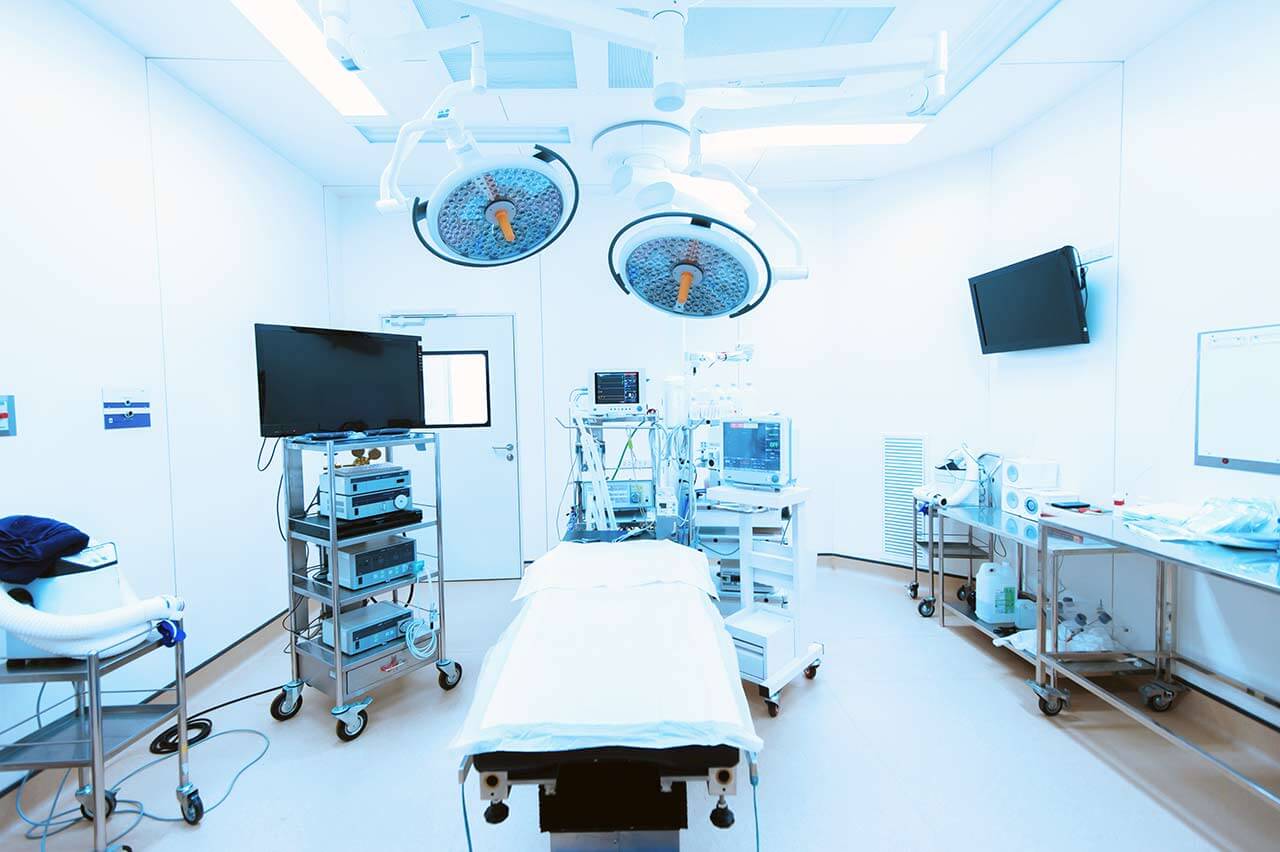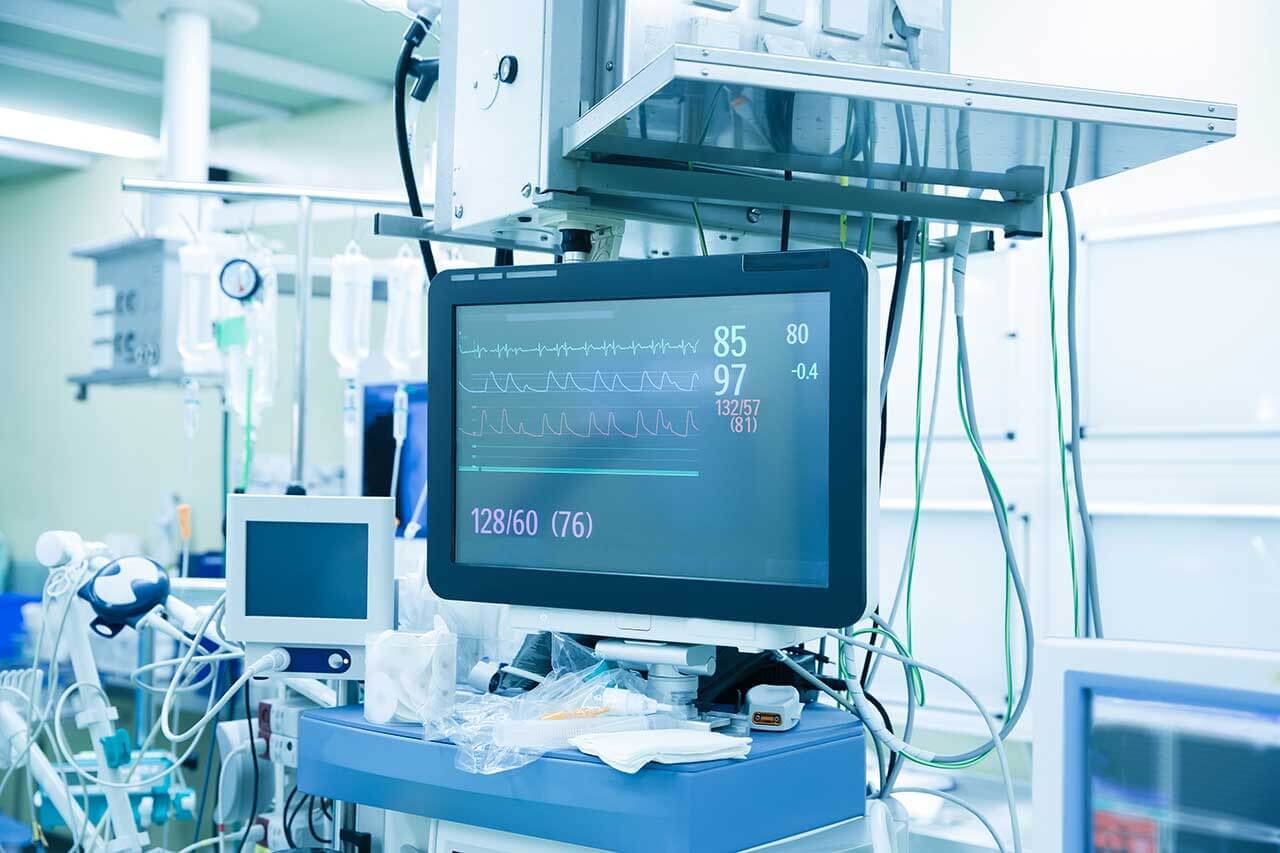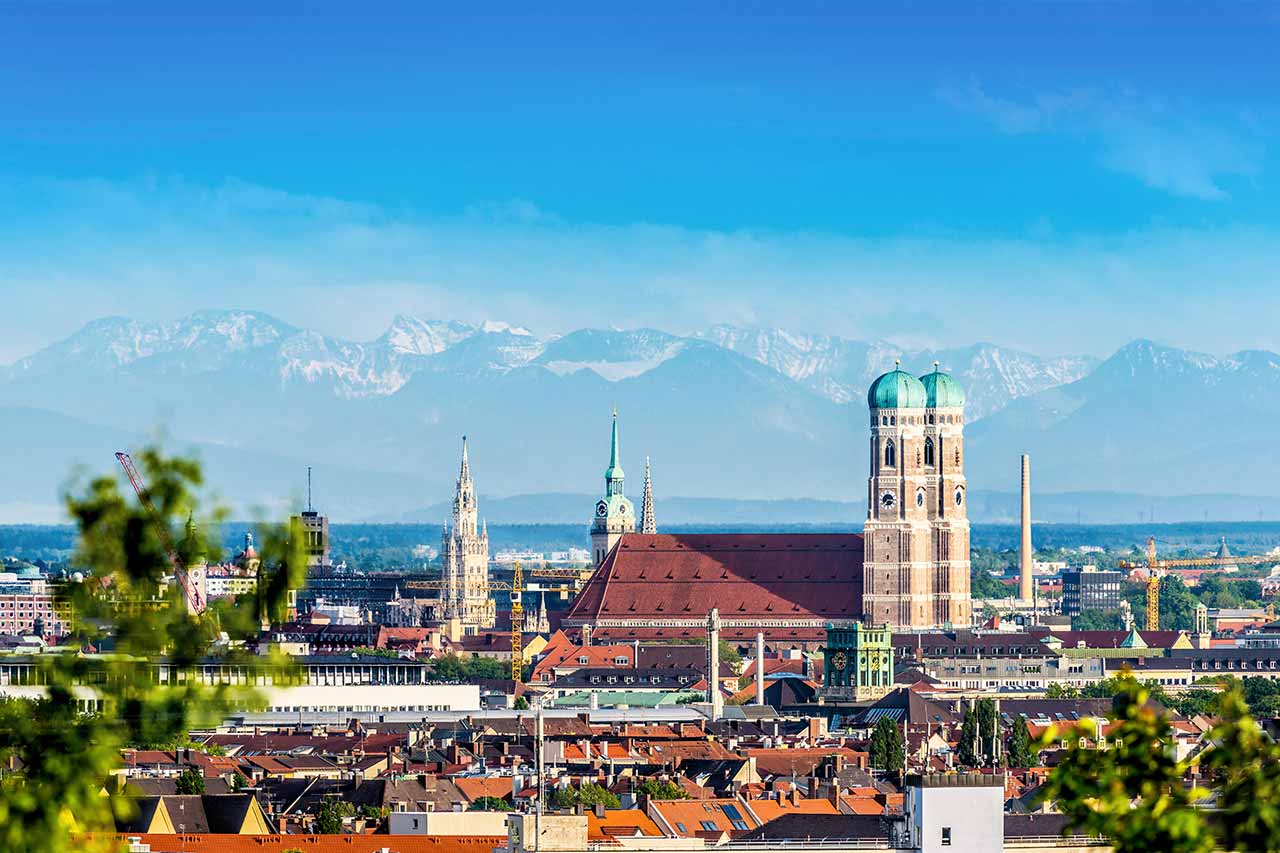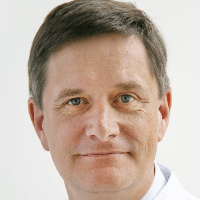
The program includes:
- Initial presentation in the clinic
- clinical history taking
- review of medical records
- physical examination
- laboratory tests:
- complete blood count
- general urine analysis
- biochemical analysis of blood
- immune status
- inflammation indicators (CRP, ESR)
- differential diagnosis with other etiologies of pain
- pain points testing
- nursing services
- consultation of related specialists
- consultation of the chief physician and all leading experts
- development of individual treatment plan
- written statement
Required documents
- Medical records
Service
You may also book:
 BookingHealth Price from:
BookingHealth Price from:
About the department
The Department of Nephrology and Rheumatology at the University Hospital Rechts der Isar Munich offers the full range of diagnostic and therapeutic services to patients suffering from kidney and rheumatic diseases. The competence of doctors of the medical facility also includes the provision of medical care to patients after kidney transplantation. In addition, the department's specialists have successful experience in the treatment of rare and especially severe kidney diseases. The department is a recognized Research Center of the European Renal Association-European Dialysis and Transplant Association (ERA/EDTA), as well as a certified center of the German Society of Nephrology, which testifies to the outstanding treatment results and excellent medical care. Many patients receive medical care on an outpatient basis, and 24 beds are available here for patient hospitalization. The department enjoys a reputation as the largest and the best medical facility of this kind in Germany. The Head Physician of the department is Prof. Dr. med. Uwe Heemann.
The department's nephrologists have vast experience in the treatment of various kidney diseases, including glomerulonephritis, pathological kidney lesions caused by arterial hypertension, inflammatory kidney diseases, systemic autoimmune diseases with kidney lesions, and genetic kidney diseases. To determine the optimal treatment tactics, the patient needs a comprehensive examination – the department has a wide arsenal of diagnostic options to assess the condition and function of the kidneys. Depending on the particular diagnosis, the department's doctors consider the possible treatment methods. The first-line treatment is pharmacotherapy with modern drugs. In case of ineffectiveness of such therapy, renal replacement therapy (dialysis) is recommended to the patient.
An integral part of the department's clinical practice is the diagnostics and treatment of rheumatic pathologies. The competent doctors of the medical facility provide effective therapy to patients suffering from joint and spinal inflammatory diseases (rheumatoid arthritis, psoriatic arthritis, spondyloarthritis, gout), systemic lupus erythematosus, Sjogren's syndrome, inflammatory myopathies, vasculitides (giant cell arteritis, Takayasu's arteritis, ANCA-associated vasculitis), IgG4-related disease, rare inflammatory diseases (Behcet's disease, relapsing polychondritis). The examination involves various laboratory tests, ultrasound and X-ray scanning, computed tomography, magnetic resonance imaging, etc. Once an accurate diagnosis is made, the necessary course of treatment is prescribed, which is often limited to the intake of effective drugs.
The department's range of diagnostic and therapeutic services includes:
- Diagnostics for suspected kidney diseases
- Ultrasound scanning of the abdominal organs
- High-frequency sonography of the abdominal organs
- Doppler ultrasound scanning of the abdominal organs and vessels
- Contrast-enhanced ultrasound scanning of the abdominal organs
- Thyroid sonography
- Lymph node sonography
- Echocardiography
- Doppler ultrasonography and compression sonography of the peripheral vessels
- Doppler ultrasound of the extracranial vessels (vessels outside the skull)
- B-scan and Doppler ultrasonography of dialysis shunts
- Ultrasound-guided needle biopsy of the abdominal organs
- Fine needle aspiration biopsy of the thyroid gland
- Diagnostics for suspected rheumatic diseases
- Joint ultrasound scanning
- Capillary microscopy
- Joint puncture with emergency microscopic testing of the synovial fluid, for example, for the presence of gout crystals or bacteria
- Modern imaging techniques: magnetic resonance imaging, computed tomography, dual-energy CT, PET-CT, PET-MRI (in collaboration with the Departments of Radiology and Nuclear Medicine)
- Therapeutic options
- Drug therapy
- Infusion therapy
- All modern types of dialysis (renal replacement therapy)
- Care for patients after kidney transplantation
- Other medical services
Curriculum vitae
University Education and Professional Career
- 1980 - 1986 Study of Medicine at the Ruhr University Bochum.
- 1986 - 1989 St. Johannisstift Hospital Paderborn.
- 1989 - 1991 Center for Internal Medicine at the University Hospital Essen.
- 1991 - 1994 Department of Transplant Surgery, Brigham and Women's Hospital, Harvard Medical School, Boston, USA.
- 1994 - 2002 Center for Internal Medicine at the University Hospital Essen.
- Since 2002 Head of the Department of Nephrology and Rheumatology at the University Hospital Rechts der Isar Munich.
Clinical Interests
- Treatment of glomerulonephritis.
- Ultrasound diagnostics.
- Hemodialysis.
- Peritoneal dialysis.
- Kidney biopsy.
- Treatment of hypertension caused by kidney disease.
Memberships in Professional Societies
- 2002 - 2003 Secretary General of the German Society for Tissue Transplantation.
- 2002 Member of the Eurotransplant Control Committee.
- Since 2002 Member of the Organ Transplantation Advisory Committee.
- Since 2002 Member of the Kidney Transplant Advisory Committee, Eurotransplant.
- 2003 - 2008 President of the German Academy of Transplantation Medicine.
- Since 2003 Chairman of the Living Donation Foundation.
- 2005 - 2010 President of the German Society for Tissue Transplantation.
- Since 2005 Member of the Eurotransplant Control Committee.
- Since 2009 Chairman of the Kidney Transplant Advisory Committee, Eurotransplant.
Awards and Honors
- 1992 Research Award of the Transplantation Society.
- 1994 Young Investigator Award, Transplantation Society.
- 1997 and 1998 Research Award of the European Dialysis and Transplant Association.
- 1999 Honorary Professor, Sun Yat-sen University, China.
- 2000 Award of the Hungarian Society for Kidney Transplantation.
- 2001 Hans Zollinger Medal of the German Society of Nephrology.
- 2007 Honorary Doctor of Semmelweis University in Budapest.
Photo of the doctor: (c) Klinikum rechts der Isar der Technischen Universität München
About hospital
The University Hospital Rechts der Isar Munich was founded in 1834. It combines long traditions with the very latest advances in modern medicine. The medical facility includes 33 specialized departments and 20 interdisciplinary centers, where patients can receive top-class medical care in all medical fields.
The hospital annually admits more than 65,000 inpatients for diagnostics and treatment, and about 250,000 outpatients receive effective medical care. The hospital also performs more than 40,000 surgical procedures every year, and about 2,100 babies are born here annually. One of the most significant achievements of the medical facility can be called the first transplantation of both arms above the elbow performed in 2008. The surgery that lasted 15 hours, and in which 40 doctors of various medical specialties took part, became a real sensation in the scientific world. Thanks to a unique surgical procedure, the doctors managed to give the patient new hands.
In addition, the employees of the hospital are actively involved in research activities, in which they study various diseases, as well as develop new therapeutic options for their treatment. It should be noted that the research institutes of the hospital are among the most reputable research organizations in the world. A striking example can be considered the Roman Herzog Comprehensive Cancer Center, whose specialists cooperate closely with the Comprehensive Cancer Center Munich in order to find new treatment methods for cancers.
The university hospital has a strict quality management system to maintain a high level of patient care. Since 2011, the hospital has been certified in accordance with DIN EN ISO 9001:2015 at the national and international level. The medical facility was also recertified by TÜV Rheinland in 2020.
The hospital annually provides medical services not only to German citizens, but also to thousands of patients from different countries of the world. This indicates that the hospital has an excellent reputation in the international medical arena and takes on the most complex clinical cases where other medical centers are unable to help the patient.
Photo: (с) depositphotos
Accommodation in hospital
Patients rooms
The patients of the University Hospital Rechts der Isar Munich live in comfortable single and double rooms with modern design. An accompanying person may stay with the patient in the single room. All patient rooms have an ensuite bathroom with shower and toilet. The furnishings of a standard patient room include an automatically adjustable bed, a bedside table for personal belongings, a table and chairs for receiving visitors, a wardrobe, a telephone and a TV. The patient rooms also have Wi-Fi.
The hospital also has enhanced-comfort rooms, corresponding to the level of a high-end hotel. Such patient rooms have additional amenities: a safe, a mini fridge and upholstered furniture.
Meals and Menus
The patients of the hospital are offered a balanced and healthy three meals a day: breakfast, lunch and dinner. The patients have a choice of three different menus for lunch – a classic full menu, as well as a dietary and vegetarian one. When cooking meals, the chefs comply with the current recommendations of the German Society for Nutritional Medicine (DGEM) and the German Nutrition Society (DGE).
If for some reason you do not eat all the foods, you will be offered an individual menu. The hospital also houses a cafeteria with a large assortment of hot and cold drinks, snacks and desserts.
Further details
Standard rooms include:
Religion
Religious services are available upon request.
Accompanying person
Your accompanying person may stay with you in your patient room or at the hotel of your choice during the inpatient program.
Hotel
You may stay at the hotel of your choice during the outpatient program. Our managers will support you for selecting the best option.
The hospital offers a full range of laboratory tests (general, hormonal, tests for infections, antibodies, tumor markers, etc.), genetic tests, various modifications of ultrasound scans, CT scans, MRI and PET / CT, angiography, myelography, biopsy and other examinations. Treatment with medications, endoscopic and robotic operations, stereotaxic interventions is carried out here, modern types of radiation therapy are also used. The hospital offers patients all the necessary therapeutic techniques.
- CAR T-cell therapy
- Autologous and allogeneic bone marrow transplantation
- Transcatheter aortic valve implantation (TAVI)
- Radical and organ-preserving interventions for kidney cancer
- Iridoplasty and iridotomy with Nd-YAG laser
These are acute and chronic leukemias, solid malignant tumors, heart failure, cardiac arrhythmias, heart valves stenosis and insufficiency, vasculitis, benign prostatic hyperplasia, pathologies of retina and vitreous body, Guillain-Barré syndrome, myasthenia gravis and other pathologies.
- Hematology and oncology
- Cardiology
- Nephrology
- Urology
- Ophthalmology
Over 877 highly qualified physicians work at the hospital.
